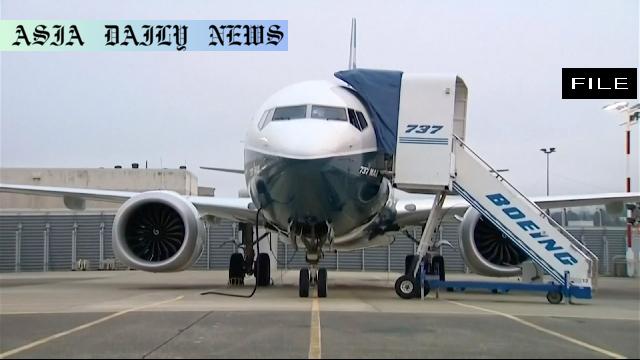Boeing Aircraft: China lifts ban on receiving US-made jets as trade tariffs ease and tensions reduce, signaling economic cooperation.
- China has lifted its ban on Boeing aircraft deliveries.
- The move is part of easing tariffs between the US and China.
- Uncertainty remains as to whether Chinese airlines will resume deliveries fully.
- This comes amidst intensified trade negotiations between the nations.

China Lifts Ban on Boeing Aircraft Deliveries Amid Trade Tariff Relief
In a significant move that highlights the easing of trade tensions between the United States and China, Beijing has lifted its ban on Chinese airlines receiving deliveries of Boeing aircraft. The decision follows the recent agreement between the two economic giants to temporarily reduce tariffs on each other’s products. This development not only marks a critical shift in relations but also carries implications for the aviation industry and economic cooperation between the nations.
The Context of the Ban
The ban had been in place since April, during which Beijing essentially halted the acceptance of Boeing jets by Chinese carriers. Officials in China pointed to the retaliatory tariffs imposed by the United States as the core reason, which caused financial strain for both Chinese airlines and the US aviation giant. As part of a broad retaliatory approach to US trade policies, China’s measures significantly impacted Boeing’s revenue streams at a time when the aviation behemoth was facing severe volatility due to other global challenges.
Temporary Relief in Tariffs
The lifting of the ban comes as a direct result of tariff relief discussions between the US and China. Both nations agreed to temporarily lower duties by 115 percentage points, significantly lightening the financial burdens on affected industries. China has indicated further intentions to repeal other countermeasures as part of broader efforts to mend trade relationships with the US. For now, the tariff on American imports has been reduced from a steep 125 percent to just 10 percent.
Uncertainty Amid Trade Negotiations
While the green light has been given for airlines to receive Boeing aircraft, it remains uncertain whether they will proceed with the deliveries. Trade talks between the two nations are ongoing, and deals of such magnitude often come with fragile conditions. Additionally, the commercial aviation industry faces unique challenges ranging from high demand volatility to geopolitical sensitivities. The situation is still unfolding, and the actual implications of Beijing’s decision will become clear over the coming months.
Economic and Industry Implications
The reversal of the ban has wide-reaching importance beyond Boeing’s immediate financial recovery. It reflects Beijing’s willingness to engage in constructive dialogue, which is vital for stabilizing relations with the United States. Additionally, reopening Chinese markets for Boeing aircraft symbolizes a critical restart for one of the world’s largest aviation markets. Economists predict that this adjustment may spur renewed trade engagements across broader sectors, driving optimism globally.
Conclusion
As tensions ease between the US and China, the resurgence of Boeing aircraft deliveries could serve as a cornerstone for strengthened economic collaboration. Not only does this represent a step forward for businesses involved, but it also signals a potential thawing of the trade war, with far-reaching effects on global markets. However, stakeholders must remain cautious as uncertainties around the ongoing negotiations linger, and the long-term impacts of this move will depend on the sustained commitments of both parties.



Commentary
The Importance of Restoring Cooperation
The recent decision by China to ease restrictions on Boeing aircraft deliveries is a profound signal of cooperation between two of the world’s largest economies. After years of heightened trade tensions and retaliatory measures, this change serves as a critical milestone that could pave the way for broader economic understandings. Both nations have suffered from prolonged trade disputes, and this move indicates that pragmatism may be winning over protectionism.
Economic Implications Beyond Aviation
While the news is primarily tied to the aviation industry, its implications extend further across global economic landscapes. The US-China trade dispute has disrupted global supply chains and weakened market confidence globally. The reduction of tariffs and the resulting reinstatement of essential business relationships will likely act as a stabilizing force, fostering economic growth in both countries.
Cautious Optimism for the Future
Although this development is undeniably positive, pending trade negotiations serve as a reminder that the path forward remains delicate. For example, whether or not Chinese airlines will proceed with accepting airplanes depends on multi-faceted issues, including geopolitical considerations and internal strategies. Still, this move demonstrates a readiness to compromise, which could be a foundation for resolving other outstanding disputes in agriculture, technology, and beyond.